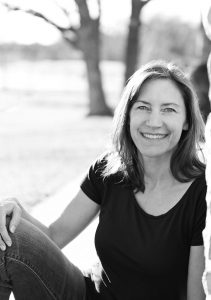Where Does Your Story Begin?
- June 2012
Good storytellers know where to begin telling a story. The first line, first paragraph, first page draws us in, makes us care, lures us into the rest of the story. Where does your story begin?
I had the pleasure recently of reading my friend Julie’s draft of her first children’s novel. She has a nice voice, but the story started slowly, with lots of backstory. I suggested she cut the whole first chapter and start the book with chapter two. That was the real beginning of the life-changing event for her coming-of-age character.
My friend Meagan is writing a magazine feature about an illustrator, Lori. There are so many qualities about Lori that would make a good story, Meagan wasn’t sure where to begin. A few days after the interview, she shared her notes and what stuck in both our minds was a scene in which Lori was in the hospital waiting room getting ready to have surgery on her heart aneurysm. Lori took out her sketch book and began to draw. We both knew this was the scene that would shed light on Lori as a person, a passionate artist, a survivor. It was a pivotal, life-changing moment in which her art gave her strength.
This week, several stories came into our home, by phone, email, Facebook; some tragic, others rejoicing. Among them: Cousin Carmin, age 27 and mother of two, hung herself in her mom’s backyard. Lauren, one of the “good kids” I’ve known since she was 3, was arrested for DUI and spent a night in jail. Judy, friends since high school, impressively won the gold in the USA Volleyball Adult National Tournament, for the bazillionth time.
All of these have a story behind them and in front of them, intertwined with other stories. When Lauren’s mom told us her story, she said, “She spent the night in jail with a hooker and a heroin addict.” Her mom wanted to know if I had words of wisdom to share. This was not a smooth transition from teen to adult. As one of the Aunties in Lauren’s life, I said I was thankful no one was hurt. That’s always my fear with a DUI situation. I know Lauren would never purposely hurt someone, so that was the wisdom that came to mind — her choices aren’t all about her anymore. When she chooses to drive after a drink, she is choosing to possibly hurt (or worse) someone else. Maybe part of her learning in this is to recognize that it’s not all about her, the inconvenience of not having a license now, etc. It’s also about her responsibility as a citizen, a human being, a driver on the road with moms and kids in the other cars who trust her to make good choices.
That was my response as an Auntie, concerned about Lauren. As a storyteller, I wondered why God wanted to bring Lauren to the “hooker and heroin addict.” Maybe they needed a Lauren. We never really know how that works. This is their story, too. What was the conversation like that night between the three of them? Lauren is probably wishing she could change that night, go back in time and not drink and drive, not lose her license, not spend the night in jail, not have to tell her mom and dad what happened. But the thing about our stories is that if we change just one thing, it changes everything. It changes who we are, who we’ve become, what we’ve learned. It changes all the other stories ours is intertwined with.
Good storytellers know where to begin telling the story so we’ll want to know more. But no matter where the story begins, one person’s story can’t stand alone. Each story is part of another. How will Carmin’s mom ever go in her backyard again? Will Carmin’s young boys’ stories begin with their mom’s death, or will that be backstory, cut from chapter one, and revealed in later pages?
In real life and in books, we all want our stories to be read, listened to, cared about. If you’re reading this, then your story and mine are intertwined. Where does your story begin?
Leave a Comment cancel

Karen’s life experience is intertwined with her roles as a wife, mom, stepmom, writer, publisher, photographer, traveler, and woman of faith. All these elements tend to make their way into her blog posts.
“Writers have to write. It’s something deep inside us that pushes and pushes until we let it out. It’s part of the air we breathe, this need to make sense of the world around us and to somehow find the right words to express and influence the way we each feel and interact and love and live.”—Writing is Risky Business
© 2018 - Karen M. Pavlicin-Fragnito